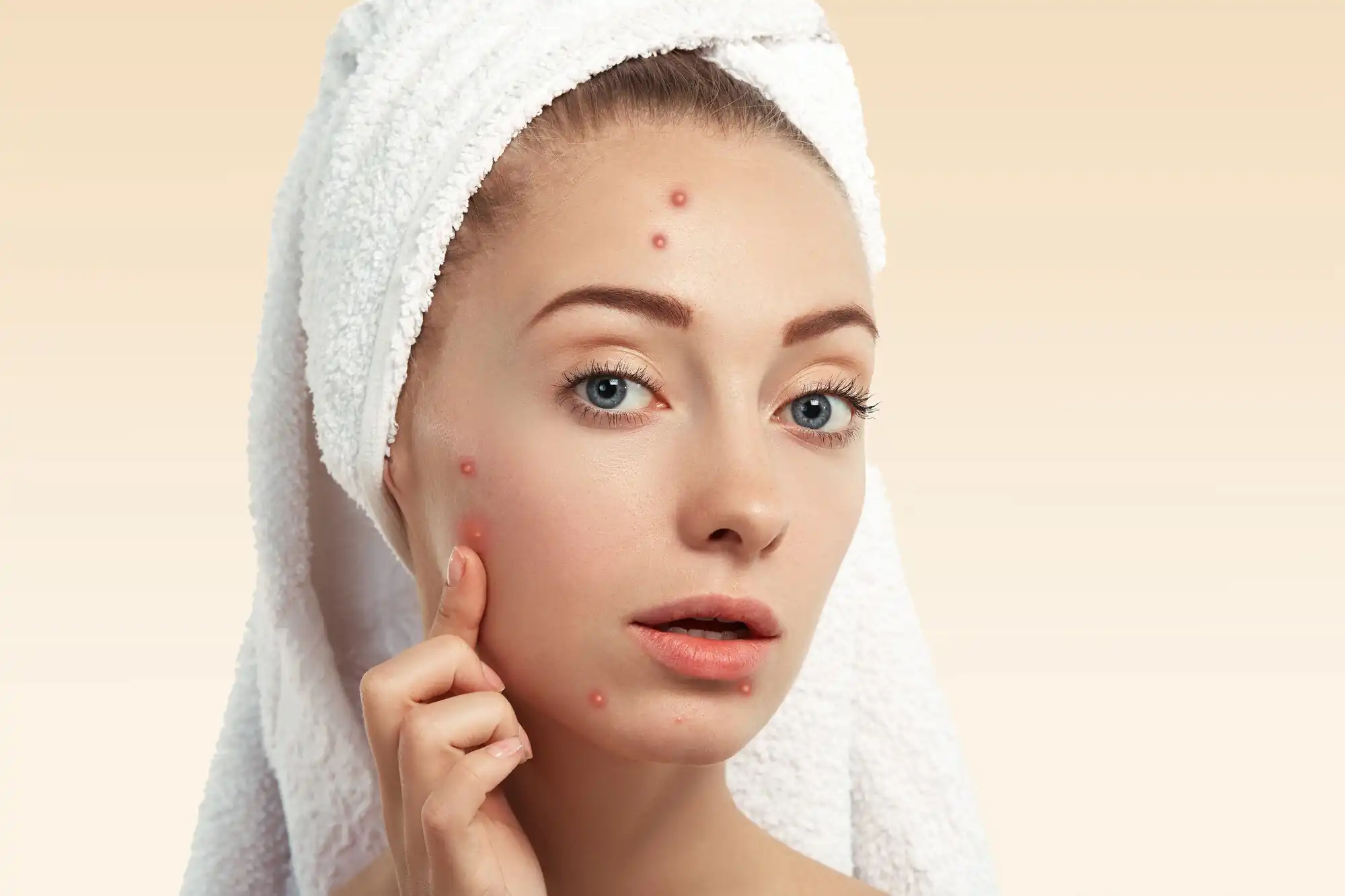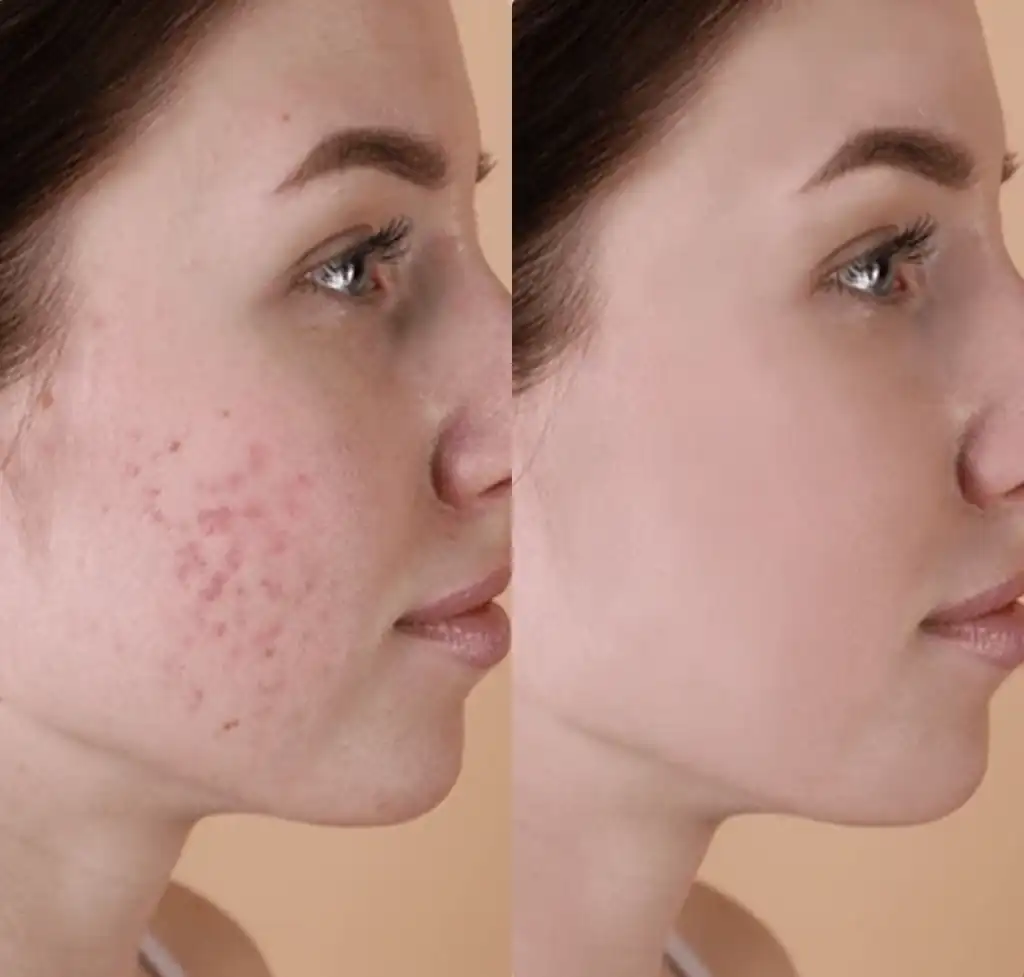What causes acne?
Acne is a chronic inflammatory skin condition affecting the pilosebaceous units (oil glands and hair follicles).
Four main factors are:
- Blockage of hair follicles by oil and dead skin cells
- Increased activity of androgen hormones
- Bacterial growth
- Excess oil (sebum) production
Acne commonly appears on skin areas with the highest number of oil glands, including the face, forehead, chest, upper back, and shoulders.
Hair follicles are linked to oil glands. When the follicle wall swells, it forms a whitehead. If the follicle opening is wide, trapped oil oxidizes when exposed to air, turning dark and forming a blackhead.
Pimples appear as red, raised bumps with a white center, caused by infection or inflammation inside blocked pores. When the blockage occurs deeper in the skin, it can form painful, cyst-like lumps beneath the surface.
What are the risk factors for acne breakouts?
Yes! Several factors can trigger or worsen acne flare-ups, including:
- Family history – A genetic tendency increases the likelihood of acne.
- Hormonal changes – Especially during puberty, periods, or hormonal imbalance.
- Certain medications – Some drugs can stimulate breakouts.
- Friction or pressure on skin – Caused by phones, helmets, tight collars, or backpacks.
- Stress – A known trigger that can aggravate acne.
- Age – Most common in teenagers and young adults.
Where can acne develop?
Acne mainly appears in areas with more oil (sebaceous) glands, such as the face, forehead, chest, upper back, and shoulders, as these regions are more prone to clogged pores and breakouts.
How to identify the types of acne?
- Blackheads & Whiteheads
- Small red tender bumps
- Pus-filled pimples
- Deep painful nodules
- Cystic acne
What diet precautions should I follow?
Diet plays an important role in acne. Dairy products and high-carbohydrate or high-sugar foods can trigger or worsen breakouts in many individuals. It is advisable to limit or avoid these foods and maintain a balanced, acne-friendly diet.
What additional precautions should I follow?
Do not squeeze or pop pimples, as it may lead to scars and infection.
Limit makeup usage; always remove before sleeping to prevent clogged pores.
Avoid keeping oil in hair overnight as it may trigger breakouts.
Treat dandruff, as it can increase acne on face and body.
Avoid harsh scrubbing; gentle exfoliation once a week is enough.
Aloe vera gel or tea tree oil can be used as supportive home care.


